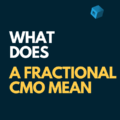Disclaimer: This article is for informational purpose only and is backed by research. However, life insurance decisions can have a significant impact on your finances, also individual needs vary based on situations. So, we strongly recommend consulting with a licensed financial advisor or insurance expert to make a decision that’s best for you.
When considering life insurance, one of the most important decisions you’ll face is choosing between permanent life insurance and term life insurance.
While both offer protection for your loved ones, they operate in fundamentally different ways.
Which is right for you? Let’s take a look!
Definition and Overview
Permanent Life Insurance
Permanent life insurance provides lifelong coverage, as long as premiums are paid. It comes with a cash value component that grows over time, which can be borrowed against or withdrawn.
- Key Features:
- Lifelong coverage: Does not expire as long as premiums are paid.
- Cash value: Part of the premium goes into a savings component that grows over time.
- Higher premiums: Due to the lifetime coverage and cash value.
Term Life Insurance
Definition: Term life insurance provides coverage for a specific period, typically 10, 20, or 30 years. It’s a simpler form of life insurance that offers a death benefit but no cash value.
- Key Features:
- Fixed term: Only offers coverage for a specific period.
- No cash value: Purely a death benefit; no savings component.
- Lower premiums: Affordable and straightforward, especially for younger, healthier individuals.
Comparison
| Aspect | Permanent Life Insurance | Term Life Insurance |
|---|---|---|
| Coverage Duration | Lifelong, as long as premiums are paid | Fixed term (e.g., 10, 20, 30 years) |
| Premiums | Higher, due to cash value and lifelong coverage | Lower, typically affordable |
| Cash Value | Builds cash value over time | No cash value |
| Purpose | Long-term financial planning, estate transfer | Temporary coverage for a specific period |
| Flexibility | Can borrow against the cash value or withdraw | No borrowing or withdrawal options |
| Cost-Effectiveness | Costly due to additional features | Affordable option for specific needs |
1. Coverage Duration
Permanent life insurance offers lifelong protection, making it ideal for those who want to ensure their beneficiaries are always protected. Term life insurance, on the other hand, only provides coverage for a set period, like 20 or 30 years, making it suitable for temporary needs such as income replacement during working years or paying off a mortgage.
2. Premiums
Permanent life insurance generally comes with higher premiums because of the lifelong coverage and cash value component. In contrast, term life insurance is more affordable, especially for young and healthy individuals, since it only provides temporary coverage.
3. Cash Value
One of the unique benefits of permanent life insurance is the cash value component, which accumulates over time. You can borrow against it or withdraw it for various purposes, such as education or retirement. Term life insurance, however, is purely for death benefit purposes, with no cash value or savings.
4. Flexibility
While permanent life insurance offers flexibility in terms of cash value borrowing and policy adjustments, term life insurance is straightforward. Once the term expires, you need to renew the policy or convert it to permanent life insurance if you still want coverage.
Pros and cons
Permanent life insurance
- Pros:
- Lifelong coverage
- Cash value accumulation
- Tax-deferred growth of the cash value
- Cons:
- Higher premiums
- More complex and harder to manage
Term life insurance
- Pros:
- Affordable premiums
- Simple and straightforward
- Ideal for temporary needs (e.g., covering debts, income replacement)
- Cons:
- No cash value or savings component
- Coverage expires at the end of the term
When to choose one over the other
One can choose permanent life insurance If:
- You want lifelong coverage and plan to use the policy as part of your estate or financial planning.
- You’re interested in building cash value and potentially borrowing against it.
- You’re comfortable with higher premiums in exchange for added benefits.
One can choose term life insurance If:
- You need affordable coverage to protect your family or cover debts for a specific period (e.g., until children are grown or a mortgage is paid off).
- You prefer straightforward coverage with no cash value or investment components.
- You want the most coverage for the lowest premium.
Ending note
Permanent life insurance provides lifelong coverage with added benefits such as cash value accumulation, making it ideal for those with long-term financial planning needs. Term life insurance, on the other hand, is perfect for individuals looking for affordable, temporary coverage without the extra features.
Recommendation: If you’re looking for a cost-effective way to protect your loved ones for a specific period, term life insurance is likely the better option. However, if you want to ensure coverage for life and have a built-in savings component, permanent life insurance may be the right choice.
Consider your financial goals and coverage needs carefully, and consult a life insurance expert to choose the policy that best fits your life stage and priorities.




